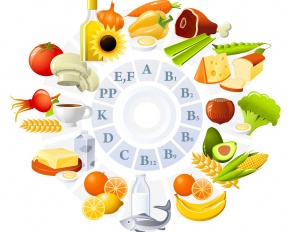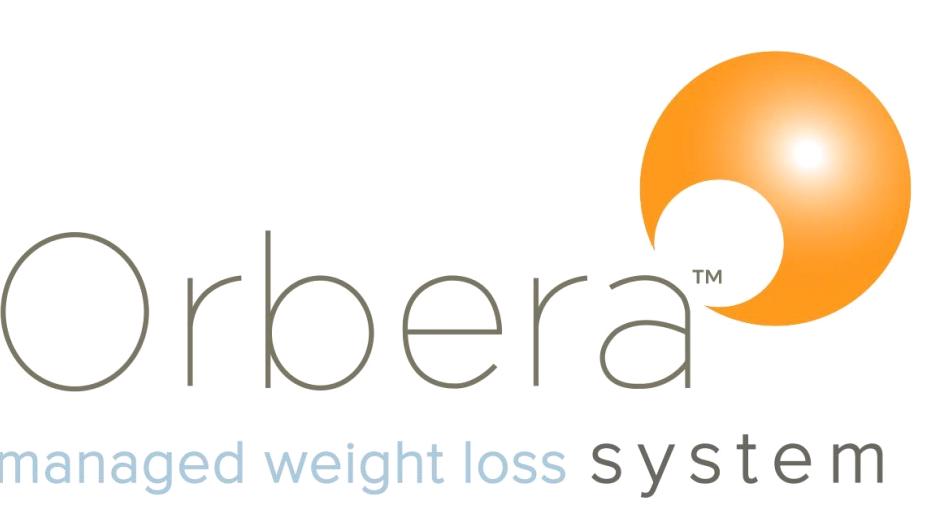 Making other people happy, doing what you love, money, freedom, falling in love, living a healthier life—these are just a handful of the answers you’ll get if you ask the question, “What is the secret to happiness?” But, seriously, what is happiness’ secret? If you were able to ask happiness if it had a secret, what do you think it would say? This mystical inquest doubtless has been at the forefront of human pursuit since the beginning of time. So has anyone ever really come up with an answer for this question? That is, has anyone come up with a real, concrete, and more important, a demonstrable solution to this seemingly unanswerable query? If you were to explore just what translates into the state of ‘happiness,’ where would that exploration take you? Let’s take a look.
Making other people happy, doing what you love, money, freedom, falling in love, living a healthier life—these are just a handful of the answers you’ll get if you ask the question, “What is the secret to happiness?” But, seriously, what is happiness’ secret? If you were able to ask happiness if it had a secret, what do you think it would say? This mystical inquest doubtless has been at the forefront of human pursuit since the beginning of time. So has anyone ever really come up with an answer for this question? That is, has anyone come up with a real, concrete, and more important, a demonstrable solution to this seemingly unanswerable query? If you were to explore just what translates into the state of ‘happiness,’ where would that exploration take you? Let’s take a look.
 Is your colon happy? Yes, you read that right. The question was: Is your colon happy? Think about it. You spend so much of your time making sure you’re building a happy home, a happy family, a happy childhood for your kids. You worry if your boss is happy with your work. You may even wonder if your bank account is happy. But you likely never think about whether your colon is happy. But the truth is when your colon is unhappy, you’re unhappy. But it doesn’t have to be that way. In fact, there are a number of steps you can take to ensure that your colon is healthy. And the great thing about colons is that when they’re healthy, they’re happy. Here are some valuable tips from gastroenterologists in Queens that can help you turn your colon’s frown upside down.
Is your colon happy? Yes, you read that right. The question was: Is your colon happy? Think about it. You spend so much of your time making sure you’re building a happy home, a happy family, a happy childhood for your kids. You worry if your boss is happy with your work. You may even wonder if your bank account is happy. But you likely never think about whether your colon is happy. But the truth is when your colon is unhappy, you’re unhappy. But it doesn’t have to be that way. In fact, there are a number of steps you can take to ensure that your colon is healthy. And the great thing about colons is that when they’re healthy, they’re happy. Here are some valuable tips from gastroenterologists in Queens that can help you turn your colon’s frown upside down.
 Nicotine organically occurs in tobacco plants, but tobacco isn’t the only plant where it can be found. In fact, nicotine actually occurs in the leaves of some of the foods you eat, including tomato plants. Nicotine is a hotly debated subject, perhaps due to the fact that it can have both negative and (seemingly) positive effects on the body. However, because nicotine can be deeply addictive, its effects on both the body as well as the brain are largely negative. And, though nicotine is most prevalent in tobacco cigarettes, today’s e-cigarettes can also contain nicotine, a fact that can cause health risks. Following is valuable information about the nicotine contained within these products, as well as tips for healthy living that may help you to make a final choice about your personal use of nicotine.
Nicotine organically occurs in tobacco plants, but tobacco isn’t the only plant where it can be found. In fact, nicotine actually occurs in the leaves of some of the foods you eat, including tomato plants. Nicotine is a hotly debated subject, perhaps due to the fact that it can have both negative and (seemingly) positive effects on the body. However, because nicotine can be deeply addictive, its effects on both the body as well as the brain are largely negative. And, though nicotine is most prevalent in tobacco cigarettes, today’s e-cigarettes can also contain nicotine, a fact that can cause health risks. Following is valuable information about the nicotine contained within these products, as well as tips for healthy living that may help you to make a final choice about your personal use of nicotine.
 When it comes to the spread of colds and flues, prevention is perhaps the most important antidote. Grabbing the first cold or cough medicine you see off the drug store shelf is nowhere near the best answer to the not uncommon dilemma of how to deal with the common cold. The fact is, it is far more effective to avoid catching a cold on the front end than it ever could be to diagnose and treat it on the back end. If you really want to live a healthier life, it’s vital that you arm yourself with knowledge about prevention in order to counter a cold’s nasty effects before they even start. Following is important information about how to prevent colds by observing good hygiene habits, avoiding the spread of colds, and boosting your immune system.
When it comes to the spread of colds and flues, prevention is perhaps the most important antidote. Grabbing the first cold or cough medicine you see off the drug store shelf is nowhere near the best answer to the not uncommon dilemma of how to deal with the common cold. The fact is, it is far more effective to avoid catching a cold on the front end than it ever could be to diagnose and treat it on the back end. If you really want to live a healthier life, it’s vital that you arm yourself with knowledge about prevention in order to counter a cold’s nasty effects before they even start. Following is important information about how to prevent colds by observing good hygiene habits, avoiding the spread of colds, and boosting your immune system.

Most Americans get very little nutrition in their daily diets. According to the President’s Council on Fitness, the typical American diet exceeds the recommended intake limits in four categories, including fats and added sugars, sodium, saturated fats, and refined grains. It also reports that most Americans eat less than the recommended amounts of fruits and vegetables, and 90% of all Americans eat more sodium than what is recommended for a healthy diet. However, perhaps what is most shocking is that the average calorie consumption has increased by 600 calories per day in the past four decades! If one of your goals this year is to eat a healthier diet, here are some tips for living a healthy life that will help you make better decisions every day from here on out so that you can look forward to a long and healthy future.
 Food allergies are on the rise, both in the United States and around the world. In fact, researchers estimate that upwards of 15 million Americans suffer from food allergies. According to the Centers for Disease Control and Prevention, food allergies among children increased by nearly 50% from the years 1997 to 2011. This swift rise in the number of people suffering from one or more food allergies is baffling to researchers, although many believe that modern chemical processes used to keep foods fresher longer play an important role. What’s most alarming is that this statistic is ever on the rise. If you’re one of the people who are suffering from a food allergy, you understand the significance this health condition can have on your lifestyle. Following is valuable information from top gastroenterologists in Queens that can help you better understand your food allergy and its affect on your body. If you have a food allergy or think you may be allergic to something you’ve eaten you should contact a GI doctor in Queens today.
Food allergies are on the rise, both in the United States and around the world. In fact, researchers estimate that upwards of 15 million Americans suffer from food allergies. According to the Centers for Disease Control and Prevention, food allergies among children increased by nearly 50% from the years 1997 to 2011. This swift rise in the number of people suffering from one or more food allergies is baffling to researchers, although many believe that modern chemical processes used to keep foods fresher longer play an important role. What’s most alarming is that this statistic is ever on the rise. If you’re one of the people who are suffering from a food allergy, you understand the significance this health condition can have on your lifestyle. Following is valuable information from top gastroenterologists in Queens that can help you better understand your food allergy and its affect on your body. If you have a food allergy or think you may be allergic to something you’ve eaten you should contact a GI doctor in Queens today.

Most of us are looking for daily health tips that will help us maintain good health. That’s why millions of Americans take vitamins on a regular or at least semi-regular basis. In fact, vitamin use is so prevalent in our society that vitamin sales top 12 billion dollars annually, with their numbers growing daily. Vitamin C, vitamin A, B complex, multivitamins, women’s vitamins, men’s vitamins … the list seems endless. But what benefits are we getting from our vitamins? Are there multiple benefits from each? And does age or gender really matter when it comes to the vitamins you take? Of questions, there are many. Following is a list of the most important vitamins and how each works in the body.
 An intragastric (or gastric) balloon is an inflatable medical device used to aid in weight loss. In a non-invasive medical procedure, the intragastric balloon is placed into the stomach on a temporary basis in selected obese or overweight patients when diet and exercise have failed. One such device is the ORBERA Intragastric Balloon, which is made of soft silicone. The ORBERA Intragastric Balloon can be beneficial to patients because it stays in the stomach temporarily, about six months, during which time it encourages a patient to eat a healthier diet. Following is more information from top gastroenterologists in Queens regarding the ORBERA Intragastric Balloon that may assist you in making an informed decision concerning this noninvasive weight loss surgery. If you are interested in learning more about non invasive weight loss procedures contact a gastroenterologist near you.
An intragastric (or gastric) balloon is an inflatable medical device used to aid in weight loss. In a non-invasive medical procedure, the intragastric balloon is placed into the stomach on a temporary basis in selected obese or overweight patients when diet and exercise have failed. One such device is the ORBERA Intragastric Balloon, which is made of soft silicone. The ORBERA Intragastric Balloon can be beneficial to patients because it stays in the stomach temporarily, about six months, during which time it encourages a patient to eat a healthier diet. Following is more information from top gastroenterologists in Queens regarding the ORBERA Intragastric Balloon that may assist you in making an informed decision concerning this noninvasive weight loss surgery. If you are interested in learning more about non invasive weight loss procedures contact a gastroenterologist near you.
 Sit up straight and eat your vegetables! How many times did Mom nag you with this line when you were growing up? Well, now you’re all grown up, and, if you want to slump down at the kitchen table, or rest your head on your hand while downing your cornflakes… so be it. But, when it comes to eating your veggies, take Mom’s advice to heart.
Sit up straight and eat your vegetables! How many times did Mom nag you with this line when you were growing up? Well, now you’re all grown up, and, if you want to slump down at the kitchen table, or rest your head on your hand while downing your cornflakes… so be it. But, when it comes to eating your veggies, take Mom’s advice to heart.
Produce packs a punch – it’s so easy to get the doctor-recommended two to seven servings of fruits and veggies daily, but to do so, what works best for you? How do you get the most nutrients out of the produce you choose for your drinks, snacks and meals?

